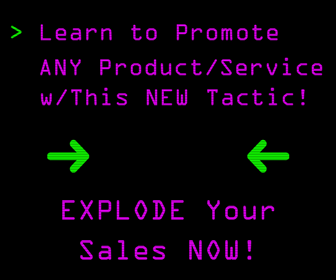 Everyone wants to become smarter, not only to improve everyday life skills but to build a successful online business. Experts reveal that it’s easier to work on one’s EQ as opposed to boosting their IQ. Even though a person's EQ may sound more challenging, there are ways to make it happen. Ready for a challenge? We often challenge business owners during free webinar training, and it’s time to further challenge oneself by improving an EQ!
Everyone wants to become smarter, not only to improve everyday life skills but to build a successful online business. Experts reveal that it’s easier to work on one’s EQ as opposed to boosting their IQ. Even though a person's EQ may sound more challenging, there are ways to make it happen. Ready for a challenge? We often challenge business owners during free webinar training, and it’s time to further challenge oneself by improving an EQ!
First off, let’s see how Forbes defines an EQ:
Kevin Kruse: How do you define EQ?
Justin Bariso: I distill it into the simplest definition, probably, that's out there, which is 'emotional intelligence is the ability to make emotions work for you instead of against you.' And there are all kinds of ways that you can apply that and direct that, but basically, that's what it is. We're emotional creatures, we make decisions based on emotion, many times. Others try to reach us or we try to reach others based on a decision, so it's being able to understand those emotions, to manage those emotions, to keep them under control so that you're making them work for you.
1. Self-awareness
One of the main aspects of EQ is self-awareness, which is why this is something you should work on. Identifying how you feel and why can help you learn why you think the way you do. Lifehack further discusses how to become more self-aware below:
Serving as the core area of emotional intelligence, being able to identify how you feel throughout the day, as well as who you are, helps you make important life choices. One way to raise your emotional intelligence is to use present language to help focus more on the present moment. Put your thoughts, feelings, and beliefs on paper. By doing this, you’re able to put things into perspective, which helps you become more aware of who you are, what you want and why. Learn to increase your emotional vocabulary by using it to describe your full range of emotions.
Knowing how to express your emotions can often help you manage them in a proper and healthy way. Don’t be afraid to give yourself the gift of silence and meditation. Reconnect with your inner self and watch your perspective and your life transform.
Inc. supports Lifehack’s thoughts by recommends a few ways to focus on developing your self-awareness. Reading is one way, and meditation is another. Reading and meditation can help you learn about others feelings and how you tend to respond to them.
“Literature exposes you to the intricacies and inner workings of complex characters you don’t get to ‘meet’ otherwise. Research has highlighted a connection between literature and enhanced emotional skills, whether in primary school students or avid readers like former US President Barack Obama. Fiction apparently tricks our minds into thinking we are part of the story, and the empathy we feel for characters wires our brains to have the same sensitivity towards real people,” he notes.
“Mindfulness and meditation are all about focusing on the here and now. And one certainly needs to be ‘present’ when listening to someone else in order to empathize with them,” says Dial, recommending Monique Rhodes’s The 10 Minute Mind for those looking to get started.
2. Sustain a positive attitude
Inc. says we should try to maintain a positive attitude, which is sometimes easier said than done. Don’t worry — this is something we all struggle with, but that doesn’t mean we should throw in the towel. Here’s how to work on being more positive:
Don't underestimate the power of your attitude. A negative attitude easily infects others if a person allows it to. Emotionally intelligent people have an awareness of the moods of those around them and guard their attitude accordingly. They know what they need to do in order to have a good day and an optimistic outlook. This could include having a great breakfast or lunch, engaging in prayer or meditation during the day or keeping positive quotes at their desk or computer.
Furthermore, Psychology Today suggests minimizing your negative personalization and reducing your fear of rejection. This can help in the business world because instead of jumping to conclusions, you can rationalize with yourself why this person is acting the way they are.
Perhaps no aspect of EQ is more important than our ability to effectively manage our own negative emotions, so they don't overwhelm us and affect our judgment. In order to change the way we feel about a situation, we must first change the way we think about it. Here are just two examples:
- Reducing Negative Personalization. When you feel adversely about someone’s behavior, avoid jumping to a negative conclusion right away. Instead, come up with multiple ways of viewing the situation before reacting. For example, I may be tempted to think my friend didn’t return my call because she’s ignoring me, or I can consider the possibility that she’s been very busy. When we avoid personalizing other people's behaviors, we can perceive their expressions more objectively. People do what they do because of them more than because of us. Widening our perspective can reduce the possibility of misunderstanding.
- Reducing the Fear of Rejection. One effective way to manage your fear of rejection is to provide yourself with multiple options in important situations, so that no matter what happens, you have strong alternatives going forward. Avoid putting all of your eggs in one basket (emotionally) by identifying a viable Plan B, and also a Plan C, should Plan A not work out. For example:
Increased fear of rejection: “I’m applying for my dream job. I’ll be devastated if they don’t hire me.”
Decreased fear of rejection: “I’m applying for three exciting positions. If one doesn’t pan out, there are two more I’m well qualified for.”
3. Respond instead of reacting to conflict
No one likes a hothead, and it’s up to you to “control” your emotions instead of allowing them to control you. Inc. offers further thoughts on how to effectively respond to co-workers and even customers when difficulties arise.
During instances of conflict, emotional outbursts and feelings of anger are common. The emotionally intelligent person knows how to stay calm during stressful situations. They don't make impulsive decisions that can lead to even bigger problems. They understand that in times of conflict the goal is a resolution, and they make a conscious choice to focus on ensuring that their actions and words are in alignment with that.
Harvard Business Review also adds to these thoughts by stating how important it is to evaluate your strengths and weaknesses. Why? Being self-aware (which we discussed in #1), can lead to growth in many ways both professionally and personally.
Turn self-deception into self-awareness. Personality, and thereby EQ, is composed of two parts: identity (how we see ourselves) and reputation (how others see us). For most people there is a disparity between identity and reputation that can cause them to ignore feedback and derail. Real self-awareness is about achieving a realistic view of one’s strengths and weaknesses and of how those strengths and weaknesses compare to others’. For instance, most people rate their own EQ highly, yet only a minority of those individuals will be rated as emotionally intelligent by others. Turning self-deception into self-awareness will not happen without accurate feedback, the kind that comes from data-based assessments such as a valid personality tests or 360-degree feedback surveys. Such tools are fundamental to help us uncover EQ-related blind spots, not least because other people are generally too polite to give us negative feedback.
Also, Harvard Business Review says to control your temper tantrums. You can laugh all you want, but if your honest everyone has a little bit of a temper now and then. It’s important to reign in the emotions, especially when you’re trying to build a business.
Control your temper tantrums. Passion and intense enthusiasm can easily cross the line to become moodiness and outright excitability when the pressure’s on. Nobody likes a crybaby. And in the business world, those who become particularly disappointed or discouraged when unanticipated issues arise are viewed as undeserving of a seat at the grown-ups’ table. If you’re one of many people who suffer from too much emotional transparency, reflect on which situations tend to trigger feelings of anger or frustration and monitor your tendency to overreact in the face of setbacks. For example, if you wake up to a bunch of annoying emails, don’t respond immediately — wait until you have time to calm down. Likewise, if someone makes an irritating comment during a meeting, control your reaction and keep calm. While you cannot go from being Woody Allen to being the Dalai Lama, you can avoid stressful situations and inhibit your volatile reactions by detecting your triggers. Start working on tactics that help you become aware of your emotions in real time, not only in terms of how you experience them, but, more important, in terms of how they are being experienced by others.
Join us during our next free webinar training and discover other ways to strengthen your mind, your EQ, and learn powerful strategies to improve your online business.
Sources: Inc., Inc., Psychology Today, Harvard Business Review, Forbes, Lifehack
CHALLENGE Yourself to Profit!
Free Download: Build Your Profit-Generating Online Business With This Free Blueprint
Sign Up, follow the easy steps and You'll get the tactics, strategies & techniques needed to create your online profit stream. It's free!



